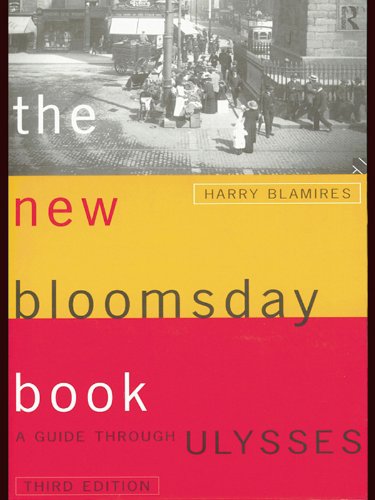
The New Bloomsday Book

That individual man’s day-by-day disappointments or successes are on a par with the large-scale disappointments or successes of epic heroes or nations, is one of Joyce’s most telling emphases. Joyce is not playing a clever little game when he parallels a Stephen with a Hamlet, a Bloom with an Odysseus, or even a Bloom with Christ; rather he is
... See moreHarry Blamires • The New Bloomsday Book
He wonders whether perhaps mother love is the only sure reality in life.
Harry Blamires • The New Bloomsday Book
description of a pier as a ‘disappointed bridge’.
Harry Blamires • The New Bloomsday Book
Pyrrhus is one of a series of heroes referred to in Ulysses who were frustrated in trying to lead a chosen people out of bondage. Moses and Parnell are among the others.
Harry Blamires • The New Bloomsday Book
a dominant theme in the book—the exploration of the nature of fatherhood and creativity human and divine.
Harry Blamires • The New Bloomsday Book
(Stephen’s reluctance to wash or to bathe is symbolically associated with his rejection of his own baptism, his failure to commit himself to womanhood, and to engage himself fruitfully in artistic creation. He has rebelled against his own mother, his mother the Church, his mother country.)
Harry Blamires • The New Bloomsday Book
Leopold Bloom corresponds to Ulysses in the Homeric parallel, and Stephen Dedalus corresponds to Telemachus, Ulysses’s son.
Harry Blamires • The New Bloomsday Book
Macbeth and Comus
Harry Blamires • The New Bloomsday Book
As I see it, the vital need at present is to stress that Ulysses is a great universal masterpiece, not a great freak. Its category is as much the category of Paradise Lost (or the Odyssey, of course) as that of Tristram Shandy